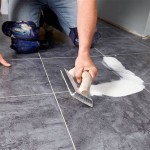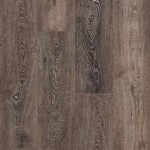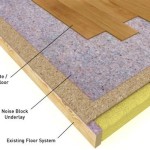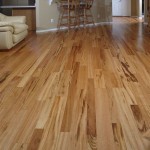Installing Bamboo Flooring: An Easy Step-by-Step Guide
Installing bamboo flooring is a great way to add a touch of elegance and sustainability to your home. Bamboo is a durable and easy-to-clean material that is also environmentally friendly. It can be installed as a floating floor or glued down, depending on the type of subfloor you have.
Materials You'll Need
- Bamboo flooring
- Underlayment
- Moisture barrier
- Transition strips
- Moldings (optional)
- Tape measure
- Pencil
- Saw
- Hammer
- Nail gun
- Putty knife
- Caulk gun
Step 1: Prepare the Subfloor
The first step is to prepare the subfloor. The subfloor should be level and free of any debris. If the subfloor is not level, you will need to level it using a self-leveling compound.
Step 2: Install the Underlayment
Once the subfloor is prepared, you can install the underlayment. The underlayment will help to cushion the bamboo flooring and prevent it from squeaking. You can choose between a foam underlayment or a cork underlayment.
Step 3: Install the Moisture Barrier
The next step is to install the moisture barrier. The moisture barrier will help to protect the bamboo flooring from moisture damage. You can use a plastic sheet or a rubberized membrane as a moisture barrier.
Step 4: Install the Bamboo Flooring
Now you can start installing the bamboo flooring. Start by laying out the first row of planks along the wall. Make sure that the planks are aligned properly and that the ends of the planks are staggered.
Once you have laid out the first row, you can start installing the second row. Stagger the joints of the second row from the first row. Continue installing the bamboo flooring until you reach the other side of the room.
Step 5: Install the Transition Strips
Once the bamboo flooring is installed, you can install the transition strips. The transition strips will help to cover the gap between the bamboo flooring and the other flooring in the room.
Step 6: Install the Moldings (Optional)
If you want to add a finished look to your bamboo flooring, you can install moldings. The moldings will help to cover the edges of the bamboo flooring and give the room a more polished look.
Step 7: Caulk the Joints
The final step is to caulk the joints between the bamboo planks. The caulk will help to seal the joints and prevent moisture from getting in.
Tips for Installing Bamboo Flooring
- Make sure that the subfloor is level and free of any debris before installing the bamboo flooring.
- Use a moisture barrier to protect the bamboo flooring from moisture damage.
- Stagger the joints of the bamboo planks to create a stronger floor.
- Use transition strips to cover the gap between the bamboo flooring and the other flooring in the room.
- Caulk the joints between the bamboo planks to seal them and prevent moisture from getting in.
Installing bamboo flooring is a relatively easy project that can be completed in a weekend. By following these steps, you can install a beautiful and durable bamboo floor that will last for years.

Bamboo Family Flooring Installation Guides

How To Install Bamboo Flooring Floated Diy Method

Beginners Guide To Installing Bamboo Flooring The Company

Installation Guide Compressed Bamboo Flooring

How To Install Bamboo Flooring Floated Diy Method

Bamboo Floors Installation Guide Floating The Floor Melbourne Top Flooring

How To Install Bamboo Flooring Tongue Groove Over Underlay

Hardwood Flooring Installation Step By Forbes Home

Bamboo Flooring Pros Cons

How To Install Bamboo Flooring Floated Diy Method
See Also







